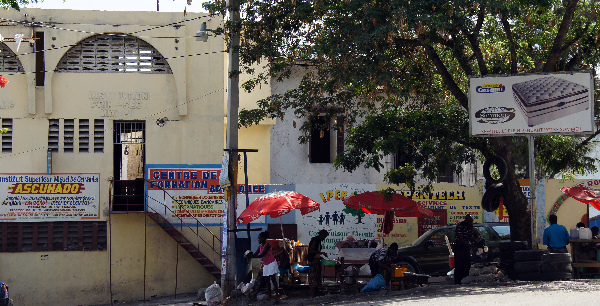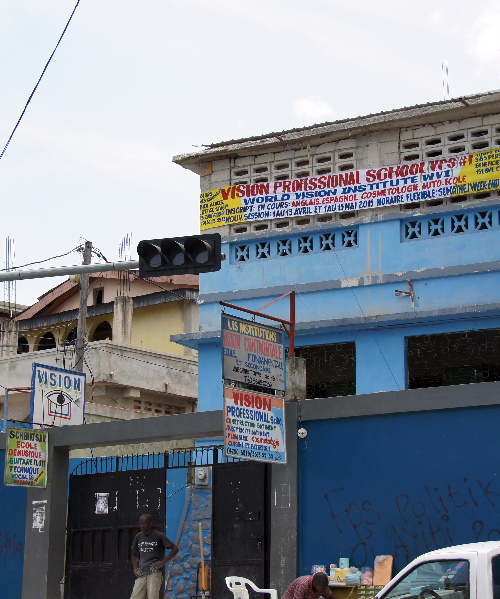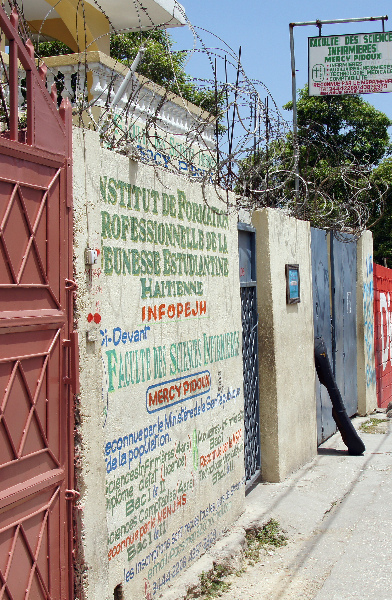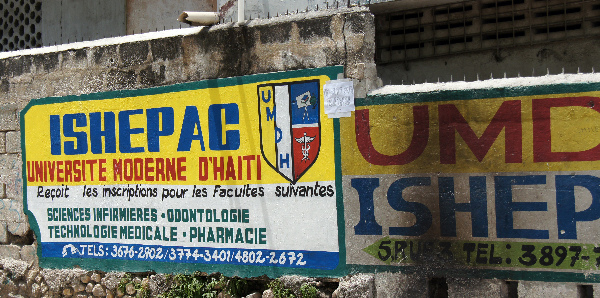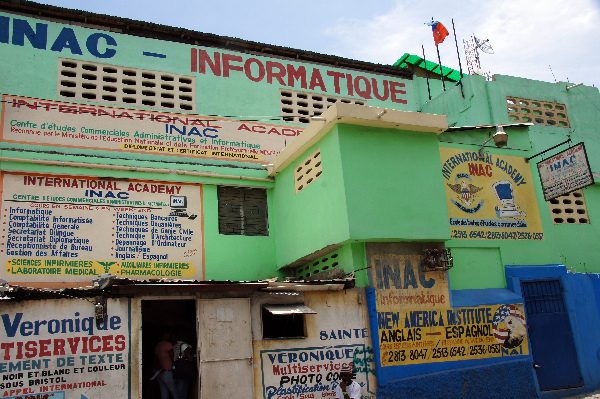While writing my last post on intelligence in the streets of Port-au-Prince, I tried to distinguish the contingent (e.g. an earthquake) from the arbitrary (e.g. a language like Creole, or making international help travel through NGOs). I was attempting to distinguish the accidental (temporality or diachrony) the systematic (history as epochs in synchrony). And put myself into an interesting theoretical bind.
It looked simple: On January 12, 2010 there was earthquake in Port-au-Prince. Everyone had to do something that they did not have to do the day before. “Everyone” is a very large crowd of people caught up with Haiti. This includes “Haitians,” non-Haitians concerned with Haiti in an ongoing manner (e.g NGO staff, journalists), and those who became concerned with Haiti as calls for help were answered by people around the world. The earthquake was, literally, a stone thrown in a lake, rippling far an wide but altogether NOT part of the lake, its shores and shoals. The earthquake was contingent.
By contrast, all the means used by the people to deal with the earthquake were arbitrary (according to my understanding of the term). The linguistics means (using Creole, French, English, etc.), were arbitrary to the needs of human communication. The procedural means used to organize what happened next were similarly arbitrary to the needs of organizing emergency responses—for example the broad use of NGOs to channel much of the international help (rather than, for example, the government, religious or commercial institutions, etc.), or the manipulation of “celebrity status” (Bill Clinton, Sean Penn) to establish authority, etc..
But… a movement of the earth would not be quite “the Haiti earthquake” if … Haiti, as the arbitrary product of the history of Europe and Africa, had not existed as precisely such an entity as it was in January 2010. The toll of the earthquake is only partially the product of its force or location. It has much more to do with housing type, governmental regulations about housing, the complex economics of building, and a tangled network reaching across the planet and across at least two centuries. The earthquake toll, thus, is the product of human activity, and thus of the multiply arbitrary world human beings make for themselves or, more exactly, for other human beings possibly far removed in time and space. A stark case in point: the introduction of a South Asian strain of cholera in a country free from any cholera for at least a century (Katz 2013: Chapter 11).
Contrastively, Creole (as the product of the French slave trade, revolutions both in France and Haiti), is something that keeps happening to the island along with French, Spanish, and now English, etc. An arbitrary act (and in humanity all acts are arbitrary) is also always a contingent event wherever and whenever it occurs: just ask those who came to help and found out that they had to get translators; just ask the Haitians who taught themselves Brazilian (or any number of other languages) in order to trade with United Nations soldiers!
So, I should probably say something like: no event is in itself contingent or arbitrary. Any event that cannot be escaped in the temporality of the sequences within which one is made to participate must be approached both as:
. A contingency requiring repair, if not change in orderings.
and as
. An ordered step within a scripted sequence.
That is: my teaching for six days last month in Port-au-Prince can be analyzed both as:
. An event that multiply interrupted my life (and that of my family), the life of the students, that of others I met there, and probably of still others about whom I know little. My teaching was a contingency in all these lives. We discovered what had to be done that none of us ever had to do before in quite this way. And then we improvised, on various themes, listening to each others take, instructing, correcting, and transforming each others.
and as
. Just the kind of event that the historical moment (epoch, culture) has kept producing in the relations between America and Haiti: an American foundation providing funds for individuals to help people in Haiti. My teaching was, also, a scripted sequence.
This is temporarily adequate, as long as it remains clear that the response to the contingent is a struggle with all means available, not simply the application of a rule. I will explore this in more detail in a further post.
References
Katz, Jonathan 2013 The Big Truck That Went By: How the World Came to Save Haiti and Left Behind a Disaster. New York: Palgrave Macmillan
 Print This Post
Print This Post
